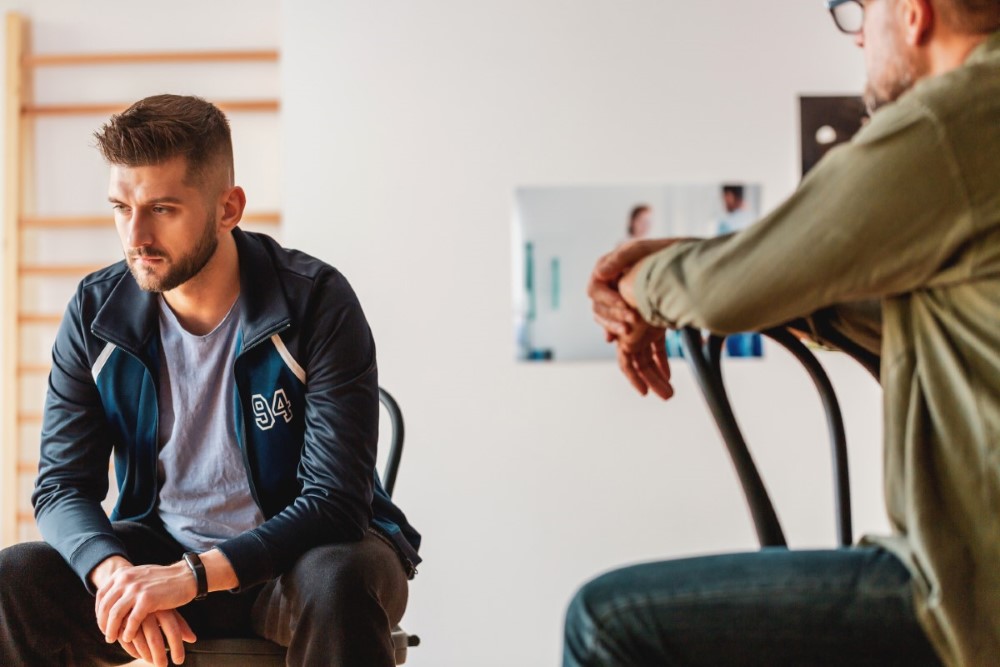The holiday season, while festive, can be fraught with challenges for those in recovery. It’s essential for you to recognize potential triggers. These could range from family dynamics to social gatherings where alcohol is present. Being aware of these triggers allows you to prepare coping strategies in advance. This might mean having a supportive friend on call or planning early exits from potentially uncomfortable situations.
Establishing Boundaries for Sobriety
One of the most powerful tools in your recovery arsenal during the holidays is setting clear boundaries. This could involve communicating with loved ones about your needs to avoid exposure to alcohol or drugs, or even choosing to skip certain events. Remember, your sobriety is paramount, and setting boundaries is a key way to protect it.
Creating New Traditions
Holidays are often linked with old habits and traditions that may not align with your recovery journey. A proactive approach is to create new traditions that support your sobriety. This could be anything from hosting a sober get-together, engaging in community service, or simply starting a new hobby. These new traditions can provide a sense of joy and fulfillment without the risks associated with past holiday routines.
Seeking Support and Community
The holidays can feel isolating, particularly when you’re in recovery. Actively seeking out support groups or communities can offer a sense of belonging and understanding. Whether it’s a local support group or an online community, connecting with others who share your experiences can provide strength and encouragement during challenging times.
Self-Care as a Priority
During the hustle and bustle of the festive season, it’s easy to neglect self-care. However, maintaining a routine that includes adequate rest, nutritious food, and regular exercise is crucial. These practices not only support your physical health but also bolster your mental and emotional resilience, key components in sustaining recovery during stressful times.
Handling Slip-Ups with Compassion
It’s important to approach the journey with compassion and understanding. If a slip-up occurs, it’s not the end of your recovery path. Acknowledging the mistake and seeking support to get back on track is crucial. Remember, recovery is a journey, not a destination, and each challenge is an opportunity to grow and learn.
Integrating Recovery Strategies into Holiday Navigation
Embracing Service Recovery in Holiday Contexts
Service recovery strategies can be a vital tool during the holidays, especially for those in recovery. Taking a cue from the business world, where a service failure like delayed food delivery is compensated with refunds and discounts, you can apply similar principles to manage holiday stressors. For instance, if you find yourself overwhelmed or facing a recovery setback, compensating with additional self-care activities or seeking extra therapy sessions can help regain balance.
Handling Grief and Loss During Festive Times
The holiday season can often amplify feelings of grief and loss, particularly in recovery. The key is to allow yourself to fully experience your emotions, recognizing their validity. Keeping open communication with therapists, support groups, and trusted friends is essential. Sharing your feelings with others who have experienced similar losses can provide a sense of solidarity and understanding.
The Four Pillars of Recovery During Holidays
Understanding the four types of recovery – Relaxation, Mastery, Downtime, and Control – can be particularly useful during the holiday season. Integrating these elements can ensure a more balanced approach to managing holiday stress. Relaxation could involve taking time for mindfulness or meditation, Mastery might mean setting and achieving small, manageable goals, Downtime is about allowing yourself guilt-free rest, and Control involves managing your environment to minimize triggers.
Practical Tips for Holiday Recovery
Navigating the holidays in recovery is about having a plan. Staying sober and stress-free might involve having sober strategies in place, such as carrying non-alcoholic drinks or planning responses to offers of alcohol. Adjusting your attitude to focus on the positives, being of service to others, and being mindful of your thoughts and actions are also crucial. Avoiding known relapse situations and taking literal care of yourself – like ensuring enough sleep and healthy eating – are key strategies.
| Embracing Social Gatherings | Opting for Solitude |
|---|---|
| 1. Seeking Supportive Company: You can find comfort and strength in attending gatherings with friends and family who support your recovery journey. | 1. Valuing Personal Space: Sometimes, you might find it more beneficial to spend time alone, reflecting and rejuvenating away from the potential stress of social gatherings. |
| 2. Using Social Interactions as a Buffer: Engaging in conversations and activities can serve as a distraction from triggers and cravings. | 2. Avoiding Triggers in Crowds: Solitude can help you steer clear of situations that might trigger a relapse, especially in environments where substances are present. |
| 3. Creating New Memories: You have the opportunity to create positive experiences and new holiday memories that reinforce your recovery. | 3. Focusing on Self-Care: Alone time allows you to focus on self-care practices, like meditation or hobbies that support your recovery. |
| Staying in Familiar Environments | Exploring New Surroundings |
|---|---|
| 1. Comfort in Familiarity: Familiar places can offer a sense of security and routine, which can be grounding for you during recovery. | 1. Breaking Old Associations: New environments can provide you with a fresh perspective, free from past associations with substance use. |
| 2. Control Over the Environment: In familiar settings, you have more control over your surroundings and can manage potential triggers effectively. | 2. Challenging Yourself: New surroundings can challenge you to develop coping strategies in different contexts, strengthening your recovery. |
| Planning Every Detail | Embracing Spontaneity |
|---|---|
| 1. Structured Approach: Detailed planning can provide you with a sense of control, ensuring that you are prepared for potential challenges. | 1. Flexibility in Recovery: Being spontaneous can help you learn to adapt to unexpected situations, a valuable skill in maintaining long-term recovery. |
| 2. Minimizing Surprises: By planning, you can minimize surprises or unplanned scenarios that might lead to stress or relapse. | 2. Finding Joy in the Unexpected: Spontaneous activities can bring joy and a sense of freedom that can be uplifting and supportive of your recovery journey. |
| Engaging in Holiday Traditions | Creating New Rituals |
|---|---|
| 1. Connecting with the Past: Engaging in familiar holiday traditions can provide a sense of connection to your past and a feeling of normalcy. | 1. New Beginnings: Creating new rituals can symbolize your new journey in recovery, marking a fresh start and new perspectives. |
| 2. Sense of Belonging: Traditional activities often involve family and friends, offering you a sense of belonging and community support. | 2. Personal Empowerment: Designing new rituals empowers you to take control of your recovery and create practices that align with your new lifestyle. |
| Focusing on Avoiding Relapse | Concentrating on Personal Growth |
|---|---|
| 1. Relapse Prevention: Your main focus might be on strategies specifically designed to avoid relapse, such as avoiding certain places or people. | 1. Holistic Development: You can focus on personal growth, viewing recovery as an opportunity to develop new interests, skills, and healthier habits. |
| 2. Safety First Approach: This approach prioritizes your safety in recovery, ensuring you avoid any situation that might be risky. | 2. Beyond Sobriety: Concentrating on personal growth puts emphasis on the broader aspects of well-being, not just sobriety, leading to a more fulfilling recovery. |
To all navigating the unique challenges of the holiday season while in recovery. I warmly invite you to delve deeper into the conversation about managing triggers and maintaining sobriety during these festive times. Your experiences, insights, and questions are invaluable in enriching our understanding and supporting each other. Together, we can explore practical strategies and share tips that make this season more manageable and joyful for everyone on this journey. I look forward to your valuable contributions and shared experiences in this vital discussion.




